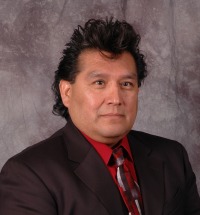
It has long been the belief of this nation’s first Americans that the federal government would attempt to rid itself of its trust obligations to American Indians. That prophecy is becoming realized in recent federal court decisions and congressional attempts to erode tribal sovereignty and the inherent right of first Americans to govern their people, on their lands.
The trend was accelerated dramatically last month with the U.S. Supreme Court decision in Carcieri v. Salazar. The ruling is creating great uncertainty for a number of Indian tribes seeking nothing more than the ability to exercise their governmental right and authority to provide for the welfare of their people.
Justices in Carcieri v. Salazar ruled that Indian tribes not recognized or under federal jurisdiction when the Indian Reorganization Act (IRA) was passed in 1934 were barred from using the act’s land-into-trust process to establish a homeland.
U.S. Senator Jack Reed (D-Rhode Island) was correct when he suggested casino gambling was “lurking behind” the greater and far more important issue: the trust relationship between two sovereigns, American Indian tribes and the federal government.
The Supreme Court, ruling on efforts by the Narragansett Tribe to place 31 acres of land in trust for a casino, prevents numerous other tribes recognized after 1934 from obtaining economic self-sufficiency through tribal government gaming by blocking their ability to place land into trust for casinos.
Interior Secretary Ken Salazar quickly released a statement saying he was disappointed in the decision, which ignores long-held practices by the department in placing land in trust for tribes.
“The department,” he said, “is committed to supporting the ability of all federally recognized tribes to have lands acquired in trust.”
House Natural Resources Committee Chairman Rep. Nick Rahall (D-West Virginia) said the ruling “could throw a shroud over the sovereign nature of land held by untold numbers of Indian tribes.” He pledged to conduct a hearing on the matter.
It is incumbent on the U.S. Congress to remedy the situation.
Indian Gaming Brings Benefits
It is time Congress, the courts and others cease using gaming as an excuse to erode tribal sovereignty and self-governance and rid itself of the federal government’s trust responsibility to the first Americans.
Tribal government gaming has proven to be a successful and productive economic development tool for Indian Country. Gaming is creating jobs with competitive pay and benefits for Indians and non-Indians. It is providing tribes with the resources to fund critical public services on reservations.
Non-Indian businesses near tribal reservations have seen their operations grow as a result of patronage by tribal governments.
Indian gaming has made it possible for young Native men and women to pursue their education at universities, colleges and vocational schools. It is helping tribes revive their languages and preserve their culture.
Communities surrounding tribal reservations have benefited from the vision and generosity of tribal governments.
The San Manuel Band of Mission Indians near San Bernardino, California, recently awarded more than $7.3 million to charitable organizations and community groups in Southern California and the western United States, enabling these groups and organizations to continue their good work and outreach. In the current economic environment, many more Americans are relying on these organizations for their basic needs.
Indian gaming is enabling tribal governments to become significant contributors to community improvements on and off their reservations.
The Supreme Court ruling threatens these opportunities for a number of tribal governments and their neighboring communities.
Congressional Action is Needed
Congress must act now to restore the right of all tribes to take lands into trust.
Elected officials on Capitol Hill must realize that some 90 million acres of Indian lands were lost from 1887-when a federal police of allotting tribal lands was imposed-and passage of the Indian Reorganization Act in 1934. Only 5 million acres have since been reacquired and placed in trust for Indian tribes.
Congress was quick to embrace the stimulus package offered by President Obama, passing the legislation in record time. It acted quickly to enact financial recovery programs for auto makers and financial institutions.
Indian tribes deserve the same speedy consideration.
Indian Country was optimistic when President Barack Obama took the oath of office. He and his administration have a real-time opportunity to honor the treaties and promises made to Native nations, a pledge he made to Indian audiences during his campaign. The president should confer with Congress and encourage them to quickly develop a fix.
It is difficult to gauge just how far-reaching Carcieri v. Salazar may prove to be. But without congressional action, options are limited and the future is bleak for a number of tribes.
There is reason to be hopeful. Native lawyers and policy analysts are reviewing the decision. Soon they will offer their guidance on the best course for Indian Country.
This also was predicted by tribal elders.






